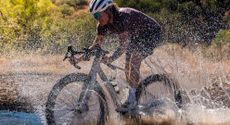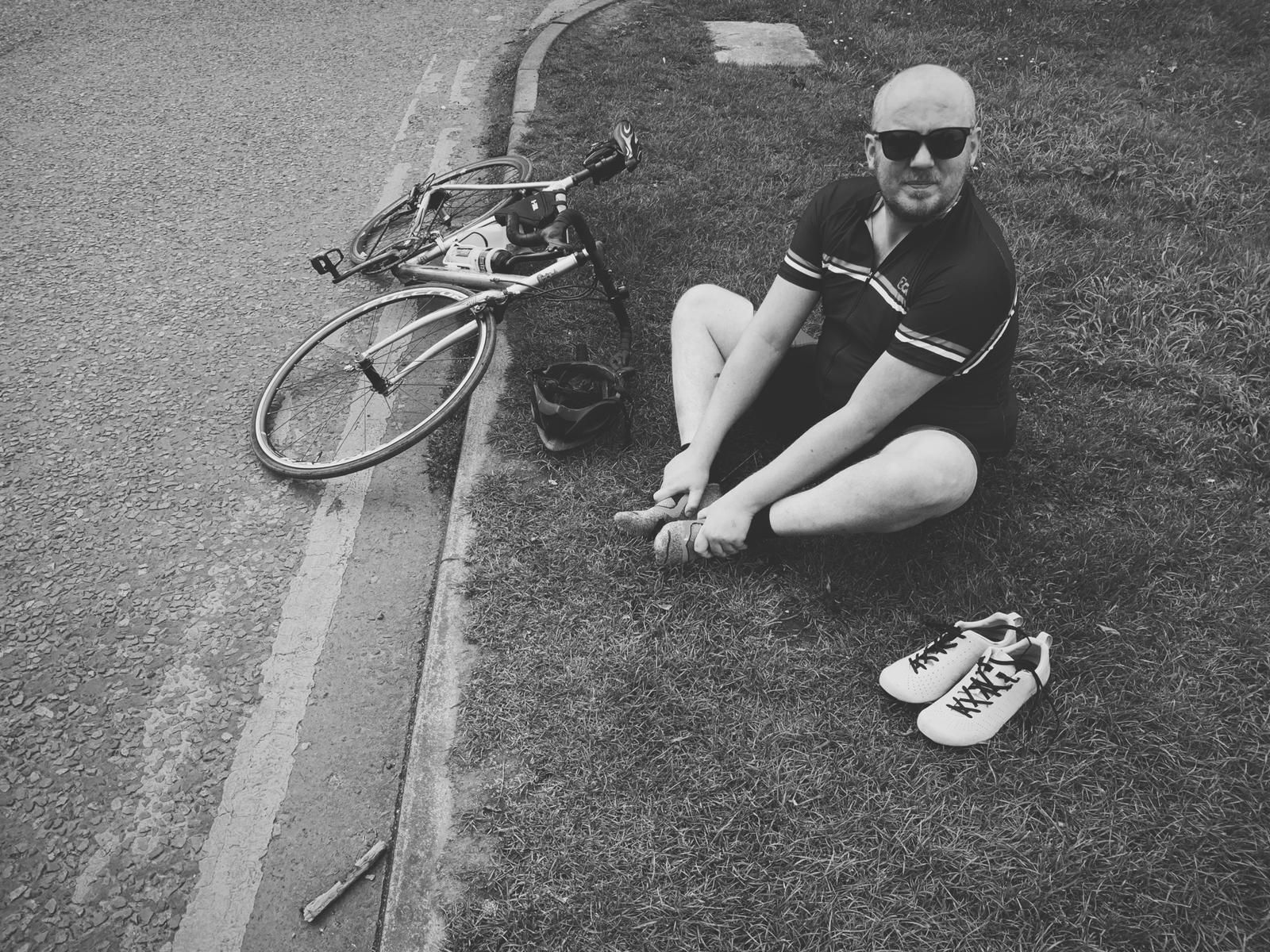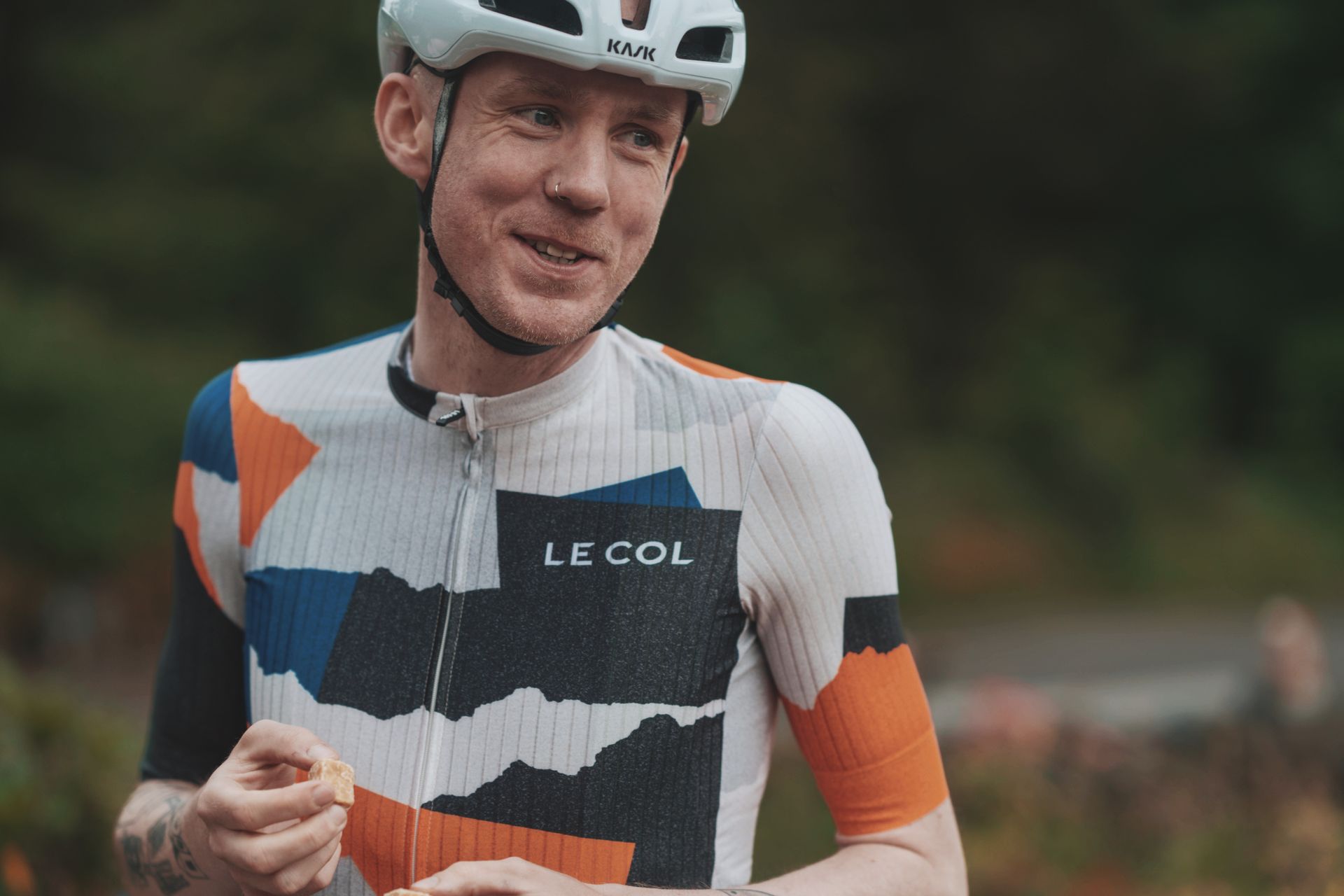I was suicidal, cycling helped get me back on track: Former guitarist lost 40kg and kicked alcohol to ride the height of Everest 12 times
Mark Bruce has climbed the height of the mountain - in a single ride - once a month, every month, for a year after going sober and getting his life back on track


Mark Bruce has completed a year of “Everesting” by cycling the height of the world’s tallest mountain in a single session every month of 2024.
Mark, a former guitarist, is also barely recognisable after shedding 40kg in weight and reckons he is “the fittest and strongest” he’s even been in his life, having fought off suicidal thoughts and a reliance on alcohol.
The 34-year-old Scot, who played for internationally acclaimed indie band Elephant Sessions, told Cycling Weekly: “I came really close to losing my life. I’d decided to leave [the band] after 10 mostly great years playing all over the world with good friends and fellow musicians.
“But I’d become very tired with all the touring and when the Covid pandemic came it hit our band – and many performers like us – very hard.
“In 2022, I ended up back at home living with my parents in the small town of Tain in the Scottish Highlands with no plan of what to do next. That’s when I really fell to pieces.”
Mark found himself falling back on “alcohol and the wrong food choices”, which had “become bad habits while touring.”
“I found myself sinking deeper and deeper into a dark place with the drink. I couldn’t see a future and I became suicidal,” he told Cycling Weekly.
Get The Leadout Newsletter
The latest race content, interviews, features, reviews and expert buying guides, direct to your inbox!
Mark picked up unhealthy habits whilst on tour
Scared for his life, Mark, who at this point tipped the scales at 105kgs, knew he needed help – and he was fortunate to gain speedy access to a mental health support service. But he was still drinking and he failed multiple times to quit.
Then, in the September of that year, something changed – and he got sober. He says: “I don’t know why it was different this time and I have decided not to think about it. I have not had an alcoholic drink since but the only way I could cope was to take one day at a time.
“I also started cycling a bit. I’d never been much of a cyclist but I’d been given an old bike during lockdown and I made a promise to myself to ride it a day each week while I was sober.”
As the months went by, Mark could see the difference the exercise was making. He says: “I was still fighting the need for a drink but the more I rode my bike, the more I wanted to ride. I felt better about myself and I started eating more healthily.
Mark was given an old bike during lockdown
“I decided to focus more on training and I enjoyed riding more miles, further distances and doing hillier routes.”
Mark also found the motivation to make a career change and, after a year of study, he qualified as a music teacher. He now works in secondary schools in Glasgow.
He says: “I moved to a new city, started a new career and continued to ride my bike. By this point I had bought myself a better bike and it was then that I spotted a video on-line of a cyclist ‘Everesting’.”
How cycling can help in the fight against depression
Health experts reveal the powerful impact of exercise on mental health, from quick boosts in mood to reducing the risks of long-term depression.
There are many studies that make a positive connection between exercise, especially moderate intensity, and the release of “feel good” chemicals endorphins and serotonin.
Regular exercise is also known to reduce anxiety, which can be linked to depression.
A review of 200 academic studies published in the British Medical Journal earlier this year, concluded: “Exercise is an effective treatment for depression.”
Cycling specifically appears to have mental health benefits. A study published in the Journal of Transport & Health in 2023 shows that cycling as a leisure activity improved perceptions of mental health and “vitality”.
Another survey by Cycleplan in 2018 found that 75% of cyclist respondents reported a boost to their mental health.
Depression can also be linked to higher levels of stress. Cycling was shown to be a great stress-buster in a study published by BMJ Journals in 2017 – and, in part, this can be explained by more time spent in green space.
Plenty of research, including a 2023 article, Green Spaces for Mental Disorders, in Current Opinion in Psychiatry, shows how nature benefits wellbeing.
Cycling takes you outdoors and a study published in Environmental Science and Technology in 2011 found that “compared with exercising indoors, exercising in natural environments is associated with greater feelings of revitalisation, increased energy and positive engagement, together with decreases in tension, confusion, anger and depression”.
In winter, too, it’s recommended that spending more time in daylight, such as cycling, can help to combat seasonal affective disorder (SAD), or “the blues”.
Everesting challenges cyclists to climb the equivalent height of Everest – 8848 metres – by riding reps of the same hill on a single climb and in one single ride. Everesting attempts must be recorded on Strava, while virtual Everestings are completed on Zwift.
Mark, who is a member of Glasgow Ivy Cycling Club, adds: “At first I thought it seemed a totally unachievable challenge but the idea got into my head and I wondered if I could do an Everest myself. That thought spiralled and within weeks I was wondering if I could do a year of Everesting.
“It was such a ridiculous idea, so I also pledged to raise money for charity.”
Mark chose Tiny Changes, a Scottish youth mental health charity that was set up in memory of Scott Hutchison, a singer and founder of the band Frightened Rabbit, who took his own life aged 36 after battling depression.
He says: “I remember the shocking death of Scott and so the charity resonated with me. I almost lost my life to depression and I see, through my work as a teacher, the need for young people to have good mental health support.”
Mark confesses that the Everesting challenge has been “extremely tough”. Every month this year, he has Everested on different hills, most of them in Scotland, and twice on a turbo trainer at home. His final Everest took place on December 16, again on a turbo trainer, but this time at the Sir Chris Hoy Velodrome in his home city.
Balancing the training load with his work as a teacher hasn't been easy
Mark’s Everest times have been between 11 hours 25 minutes and 17 hours 31 minutes and from the shortest distance of 139km to the longest of 272km. The number of reps on the road have been between 42 and 69 and the gradients have averaged 8.8%, with the “easiest” at 6.8% and the steepest of 13.4%.
The toughest ride has been on The Lecht in Aberdeenshire, where the average of 1.4% included sections of 20% gradient. Meanwhile, Coulport hill on the Rosneath Peninsula, Argyll and Bute, with an average 7.8% gradient, has been Mark's favourite Everest because “the climb was pretty perfect”.
He says: “I’m now very tired physically due to month after month of Everesting. Trying to fit them in around my teaching work and getting enough time for recovery has been really challenging, too.
“But, I am so happy with what I have achieved and I am fitter and stronger than I’ve ever been.
“I am scared to think back and to consider how different things could have been, so instead I just feel very fortunate and keep looking forwards and riding my bike.”
Mark’s Everest rides are recorded on Eversting.com. You can see his journey on his Instagram page @adozeneverests and support his fundraiser here.

Thank you for reading 20 articles this month* Join now for unlimited access
Enjoy your first month for just £1 / $1 / €1
*Read 5 free articles per month without a subscription

Join now for unlimited access
Try first month for just £1 / $1 / €1
Fiona Russell – better known as Fiona Outdoors – is a widely published outdoors and adventure journalist. She lives on the Black Isle, in the Scottish Highlands, and enjoys a wide range of outdoors activities, including trail running, mountain hiking, gravel cycling, wild swimming, sea kayaking and back-country skiing. Aside from her own adventures, Fiona's biggest aim is to inspire others to spend more time outdoors and exploring, especially through her writing. Find out more at Fiona Outdoors.
You must confirm your public display name before commenting
Please logout and then login again, you will then be prompted to enter your display name.
-
 Anne-Marije Rook's 2024 Gear of the Year: from the best brakes on the market to great earbuds and a statement t-shirt
Anne-Marije Rook's 2024 Gear of the Year: from the best brakes on the market to great earbuds and a statement t-shirtIn 2024, I fell back in love with road riding and witnessed women’s sports make history time and again
By Anne-Marije Rook Published
-
 'Anything can happen': Our men's rider of the year Joe Blackmore looks back on a stellar 2024 and weighs up his future
'Anything can happen': Our men's rider of the year Joe Blackmore looks back on a stellar 2024 and weighs up his futureThe Londoner tells Cycling Weekly about his hopes for next season, his sporting heroes, and how he plans to walk the tightrope between on road and off
By James Shrubsall Published


